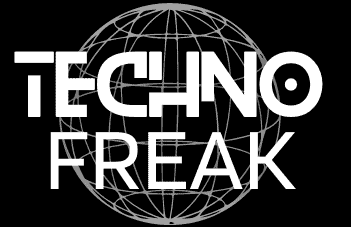Ratan Tata is revered for his transformative leadership and unwavering commitment to ethical business practices. His leadership style has not only driven the Tata Group to global prominence but also set a benchmark for corporate governance and social responsibility. This article explores Ratan Tata’s leadership philosophy, traits, management approach, and enduring influence.
Leadership Traits Ratan Tata’s leadership is characterized by his visionary thinking and strategic planning. From the outset of his career, he demonstrated an ability to foresee industry trends and adapt accordingly. His strategic vision led to the successful expansion of the Tata Group into international markets. A key trait that underpins his leadership is his emphasis on ethics and corporate responsibility. Ratan Tata believes in conducting business with integrity and has instilled these values throughout the Tata Group.

His leadership is also defined by his resilience and ability to navigate through crises. Whether it was the 2008 financial crisis or the various challenges faced by Tata companies, Ratan Tata’s calm demeanor and strategic acumen have been instrumental in steering the group through turbulent times. His ability to remain focused on long-term goals, while addressing immediate challenges, has set him apart as a leader.
Management Approach Ratan Tata’s management approach is handson and deeply involved in the projects he oversees. Unlike many corporate leaders who delegate tasks from afar, Ratan Tata has always preferred to be actively engaged in the operations and strategic decisions of the Tata Group companies. This handson approach not only ensures that he is wellinformed about the business but also boosts the morale of his employees, who see their leader working alongside them.
One of the hallmarks of his management style is his encouragement of innovation and creativity. Ratan Tata believes in fostering a culture where employees are encouraged to think outside the box and come up with innovative solutions. This approach has led to several groundbreaking projects, such as the Tata Nano, which aimed to provide affordable transportation to millions of people. Although the Nano did not achieve the commercial success expected, it exemplified Ratan Tata’s commitment to innovation and addressing societal needs.
Another aspect of his management approach is his focus on employee welfare and development. Ratan Tata has always prioritized the well-being of his employees, recognizing that a motivated and satisfied workforce is crucial to the success of any organization. Under his leadership, Tata Group companies have implemented various initiatives aimed at employee development, work-life balance, and health and safety.
Legacy and Influence Ratan Tata’s influence extends beyond his tenure as chairman of Tata Sons. He has played a significant role in mentoring future leaders, both within the Tata Group and in the broader business community. His mentorship has helped shape the careers of numerous business leaders who continue to uphold the values and principles he championed. Ratan Tata’s leadership style has left a lasting impact on the corporate culture of the Tata Group. His emphasis on ethics, social responsibility, and innovation has become ingrained in the group’s DNA. Even after his retirement, these principles continue to guide the strategic decisions and operations of Tata companies.
One of his notable contributions to the legacy of the Tata Group is the emphasis on sustainability and corporate social responsibility (CSR). Ratan Tata has always believed that businesses have a responsibility to give back to society and operate sustainably. Under his leadership, the Tata Group has implemented various CSR initiatives aimed at improving education, healthcare, and rural development. These initiatives have not only benefited millions of people but also enhanced the group’s reputation as a socially responsible conglomerate.
Ratan Tata’s influence is also evident in the way the Tata Group navigates challenges and seizes opportunities. His strategic vision and leadership principles have equipped the group to adapt to changing market dynamics and capitalize on new growth opportunities. The acquisition of iconic global brands like Jaguar Land Rover, Tetley, and Corus are testament to his ability to think big and execute ambitious plans.
Conclusion Ratan Tata’s leadership style and principles have had a profound impact on the Tata Group and the broader business community. His visionary thinking, ethical conduct, hands-on management approach, and commitment to innovation have set a high standard for corporate leadership. Ratan Tata’s legacy is not only reflected in the global success of the Tata Group but also in the lasting influence he has had on future generations of leaders.
His emphasis on corporate social responsibility and sustainability has redefined the role of business in society. By prioritizing ethical practices and social impact, Ratan Tata has demonstrated that businesses can be successful while also contributing to the greater good. His journey as a leader serves as an inspiration to aspiring business leaders and underscores the importance of integrity, resilience, and visionary thinking in achieving lasting success.

